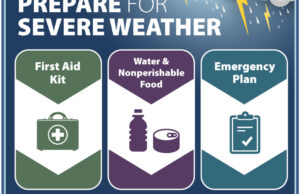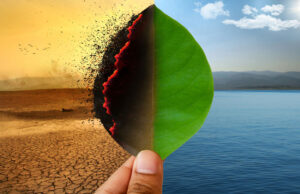More than just warming, climate could in vast ways
Let’s face it: we’re heading into a cold Iowa winter and the furthest thing from most minds is global warming. Many have assumed that climate change equals global warming; however, that is only one part of the equation.
Earth’s temperature fluctuates over time by a few miniscule degrees. Seen throughout history, ice ages have come and gone. This time, however, it’s different. The average temperature of the atmosphere and water on Earth has risen unwaveringly since the late 1800s, and humans are to blame. Projected to rise another two to 11.5°F over the next hundred years, Earth’s average temperature has already risen 1.4°F over the last 100 years. The Intergovernmental Panel on Climate Change, a group of 1,300 scientific experts from countries of the United Nations, found that it is 90 percent sure that the temperature rise is due to human activity over the past 250 years. This isn’t just a small feat by humans. The buildup of greenhouse gases (water vapor, carbon dioxide, methane, nitrous oxide, ozone, fossil fuels) in the atmosphere traps heat, raising the earth’s temperature. This results in changing precipitation patterns, increases in sea level and ocean temperatures and the rapid melting of glaciers and oceanic ice. It has lasting, irreversible impacts on many aspects of human life.
So what’s causing this climate change? To put it simply, humans are. The excess greenhouse gas is emitted by energy production, deforestation, manufacturing, crop fertilization, landfills, livestock production and driving, according to the U.S. Environmental Protection Agency. The carbon dioxide can stay trapped in the atmosphere for upwards of a century.
Climate change isn’t just rising temperatures. Rising sea levels pose a growing threat to residents along every coast. According to the EPA, global sea level has risen by about 8 inches since 1870. If the trend continues, there could be a 2-foot to 6.5 foot rise in global sea level by 2100. It may not sound like a lot, but it risks countless human lives in coastal cities. The melting of precious glaciers also poses a threat to icy ecosystems and their animal residents. Even the smallest increments of sea level changes can devastate a sensitive habitat. “As seawater reaches farther inland, it can cause destructive erosion, flooding of wetlands, contamination of aquifers and agricultural soils, and lost habitat for fish, birds and plants,” National Geographic said.
Climate change also brings along a dangerous friend: increasingly temperamental weather patterns. Increased flooding and drought risk a multitude of human lives. Extreme weather events place a large burden on the production of energy and resources, increasing the price, as well as property damage costs. The weather also threatens jobs and livelihoods. Transportation becomes dangerous, bruising economic activity. Some recreational activities could become a thing of the past, due to extreme weather.
The extremity of climate change puts humans’ and animals’ health at risk. According to the EPA, warmer temperatures increase the intensity of heat waves, posing health risks, particularly for young children and the elderly. Parasites bloom in heavy rainfall or flooding, easily passed to human carriers. Higher temperatures allow ticks carrying Lyme disease to spread into new areas, infecting many. West Nile thrives in higher temperatures. The destruction of ecosystems will leave many animals either facing or experiencing extinction, leaving rippling effects throughout the environment.
Climate change does not equal global warming. It is a multitude of problems bundled together with Earth’s rising temperatures. Next time you look out the icy windows, forget the short-term weather and think about the future. Will your children be able to breathe clean air or will it be saturated with greenhouse gases? Encourage local lawmakers to introduce bills curbing the output of carbon dioxide from industrial manufacturing. Join a neighborhood carpool to reduce the amount of cars on the road. Conserve water and pick up trash. A difference must be made to ensure the lives of the future. But until then, leave your hopes of tropical breezes behind. We’ve got a lot worse coming.









Pingback: 2013-14 | Tiger Hi-Line Online